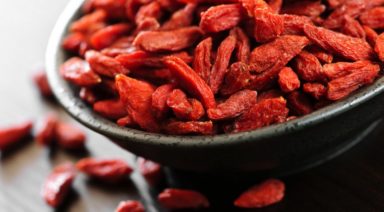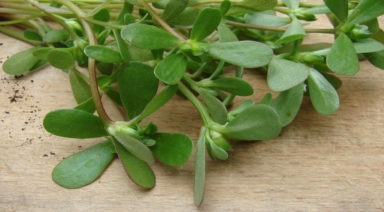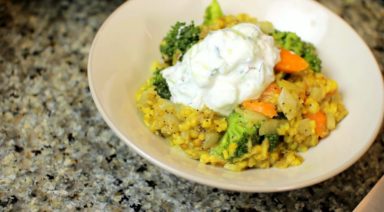This Ancient Healing Practice Drastically Reduces Inflammation

Recent scientific discoveries suggest a new approach to managing inflammation. Will it be effective at dealing with an issue believed to be at the root of all diseases?
Alzheimer’s, cancer, diabetes, heart disease, depression, autoimmune disease — are just a few of the conditions in which inflammation is known to play a major role. Though it is the body’s natural process to rid itself of waste products, excessive inflammation can wreak havoc on multiple systems.
In a new approach, scientists suggest they may have found a way to go beyond current treatments that seek to stop inflammation, often without lasting effects. The new research focuses on targeting immune cells called macrophages to help with the cellular clean-up necessary to fully resolve inflammation.
Dr. John Douillard is a leading practitioner of Ayurveda, the ancient Indian system of natural medicine often called “the mother of all healing.”
“Science shows — which is great — ‘we need to get in there, help manipulate the macrophages and clean up the lymph outside the cells…’ Great idea! But Ayurveda would say ‘let’s do that by going upstream,’ and treat the upstream cause of that inflammation versus trying to put out the fire with fire trucks in which the fire is sometimes too big for the fire trucks,” Douillard said.
Ayurveda has traced the upstream issues causing inflammation to several key factors.
“Inflammation is a double-edged sword right? It happens in a natural way, the body has to plan for that, but it also can be excessive, and that stems from the Ayurvedic perspective from a weak and broken-down digestive system,” Douillard said.
“So, if you don’t break your proteins and your fats down the way you should… (it) will go undigested into your digestional tract, they’ll be too big to get into your blood and feed you, according to the studies, and find a way to get into the lymphatic system, which lines your intestinal tract. It creates extra weight around your belly, it creates inflammation, and that’s inflammation in the lymph. Remember, the lymph system is trying to do three basic things: one carry the trash out, number two carry your immune system, and number three carry good, broken-down fats to every cell of your body for baseline energy. So, inflammation is going to cause fatigue and tiredness, and it can cause a compromised immune system.”
Another cause of inflammation seen as pivotal by Ayurveda has to do with our exposure to light.
“We have a daylight deficiency in our culture and getting out in the sun is critically important because that produces antioxidants in our cells that prevent inflammation. So, if you don’t get outside you’re going to be inflamed. One of the best, biggest mitigators for oxidative stress and inflammation is the sun. 70 percent of the sunlight that we see outside is called infrared light, which penetrates our skin several inches and activates the production of energy in the mitochondria, but it also activates an antioxidant and the name of that antioxidant is called melatonin, which is the number one mitigator for inflammation,” Douillard said.
What else, besides getting outside, can we do to mitigate inflammation?
“One of the things that we all know, but don’t maybe do as well as we could, is eating organic and organic foods are important because when you eat conventional foods that have pesticides on them — those pesticides kill the microbes in your mouth that make enzymes that help you digest the food properly, like the wheat and dairy,” Douillard said.
“Processed foods have a similar impact on the body. Now there are foods for the lymphatic system — anything that is like a berry or a cherry, or a beet, or cranberry — anything that would turn your beautiful white shirt red and stain it, is going to be an antioxidative food that’s going to help support lymphatic drainage because the antioxidants work through your lymphatic system. All the leafy green alkaloid foods are very good for your lymphatic system as well,” he said.
“Stress is a big factor — techniques like meditation, yoga, and breathing techniques are all powerful stress-reduction techniques — but the body was designed to handle stress and mitigate inflammation. But when you have nothing but stress coming in, and no pulling back the bow and becoming calm — I call it the eye of the hurricane — and that’s the goal of Ayurveda is to learn how to live in the eye of the storm, and that is where inflammation doesn’t exist.”
While Douillard commends western scientists for their advances in understanding the underlying mechanisms of inflammation, he believes that when it comes to treating the root causes, 5,000 years of Ayurvedic science has gotten it mostly right.
You Can Rewire Your Brain to Eliminate Chronic Back Pain

A groundbreaking new study shows the remarkable efficacy of a brain-based treatment for chronic back pain. It provides new hope for a debilitating problem.
One in five Americans suffers from chronic pain, most often without receiving many benefits from invasive and costly treatments.
The most common type of chronic pain is chronic back pain- in 85% of cases of which no physical cause can be identified.
Dr. Yoni Ashar is a clinical psychologist and neuroscientist who studies psychological treatments for chronic pain. He recently led a study at the University of Colorado Boulder to determine whether a psychological treatment can eliminate chronic back pain — something no other therapy has ever before been scientifically proven to do.
“Our society predominantly thinks about chronic pain through a biomechanical, medical perspective. The most common treatments are physical; they’re injections or physical therapy, something targeting the body. What we’re learning more and more is that in many cases of chronic pain the problem lies in the mind or the brain. And we now have decades of research, both in neuroscience medicine and psychology, showing that there are a lot of changes that happen in the brain during chronic pain. In many cases, these can cause the pain to persist after an injury has healed.”
An important distinction that should be made when discussing chronic pain is that between the two types — primary and secondary.
“With secondary chronic pain, the pain is secondary to some medical problem or disease. With primary pain the pain is the primary problem, it is not secondary to anything else. What really is driving it are neuroplastic changes in the brain, and fear and avoidance. Fear is at the heart of chronic pain, so pain is a danger signal. The fundamental function of pain is to guide a person or animal away from things that are dangerous and when we perceive things to be dangerous that can amplify or even create this pain in our brains.”




































